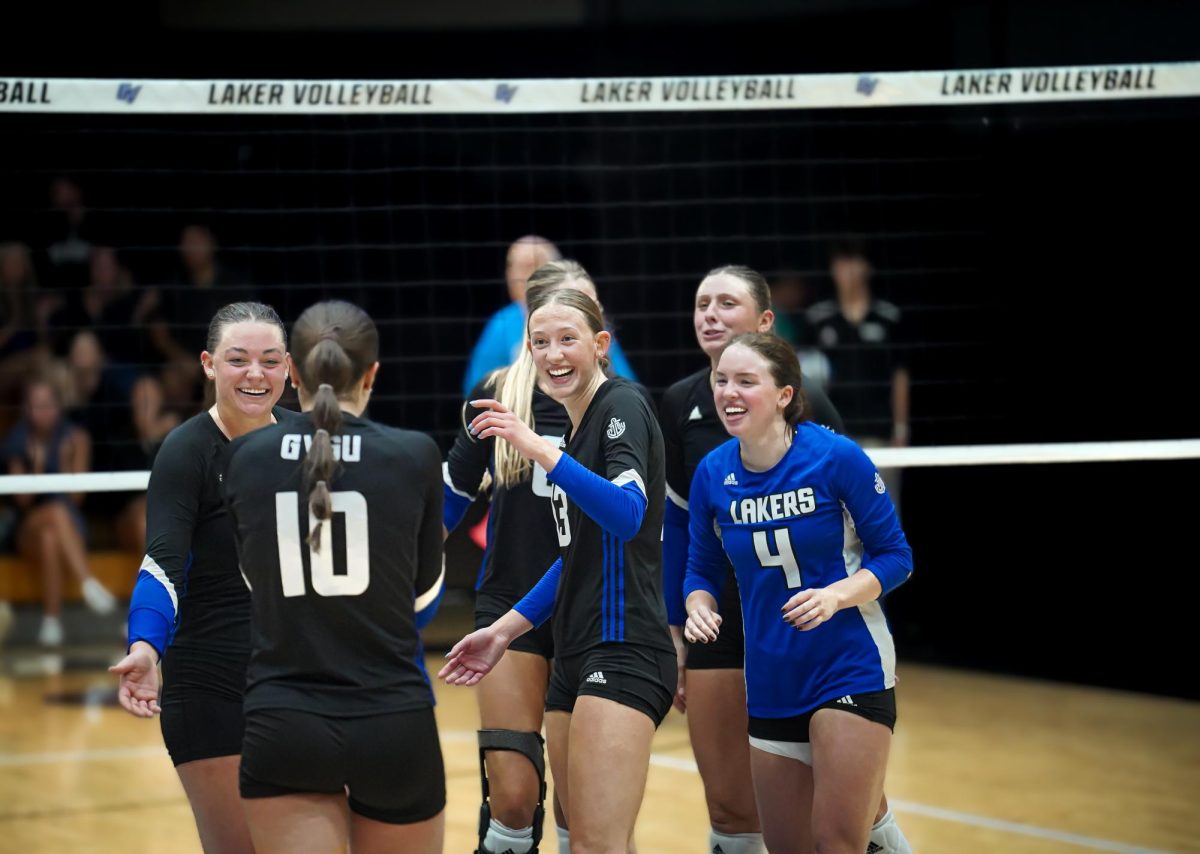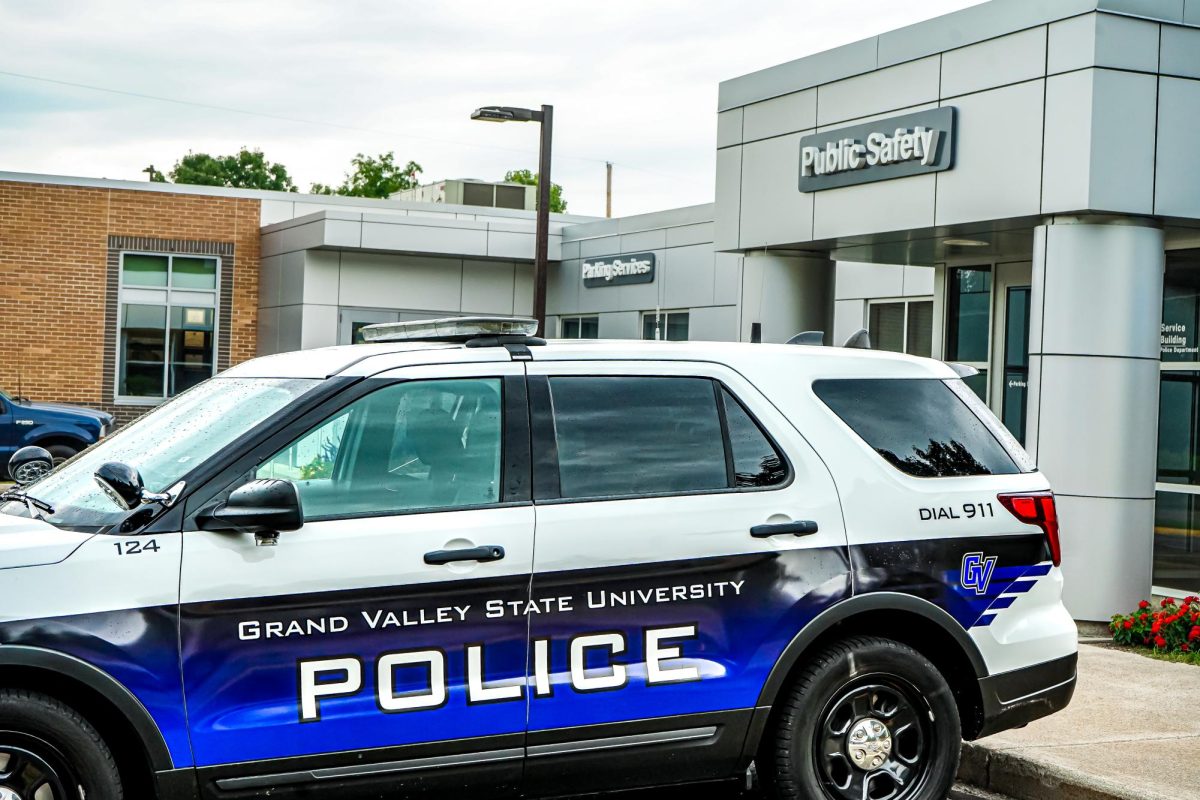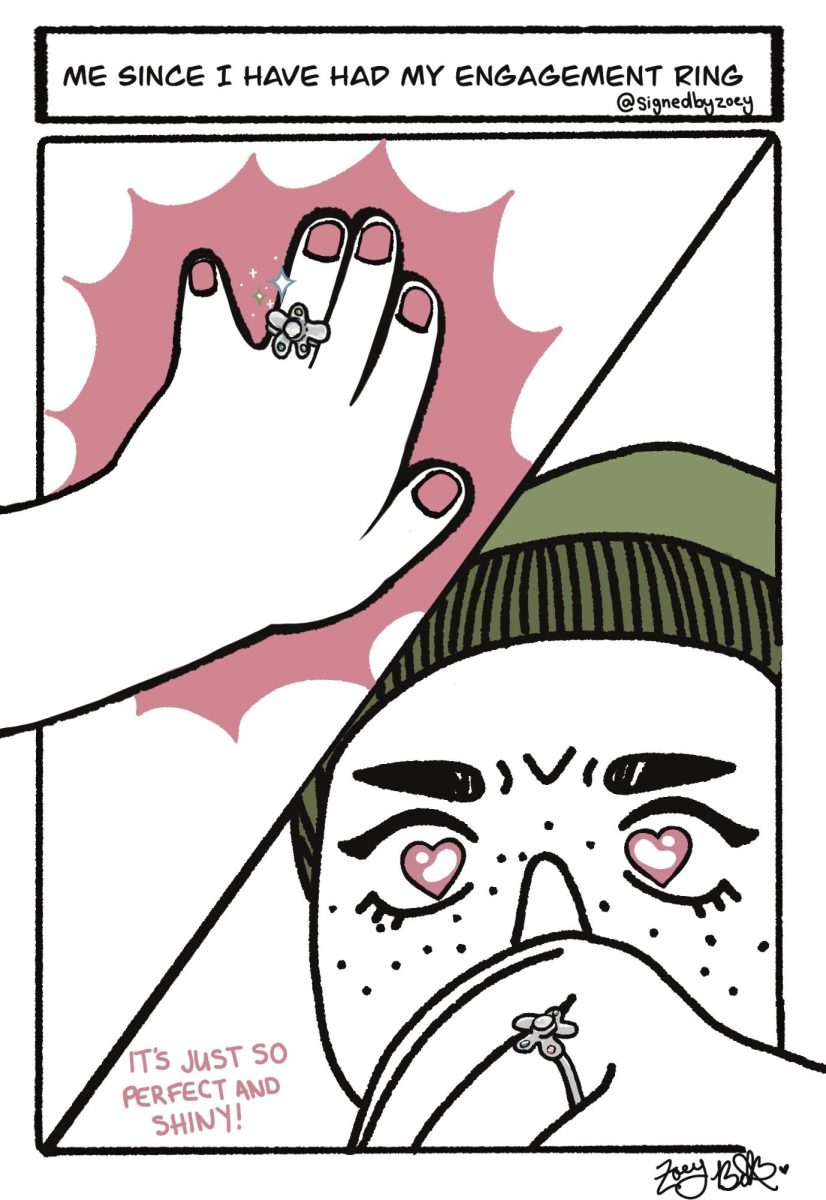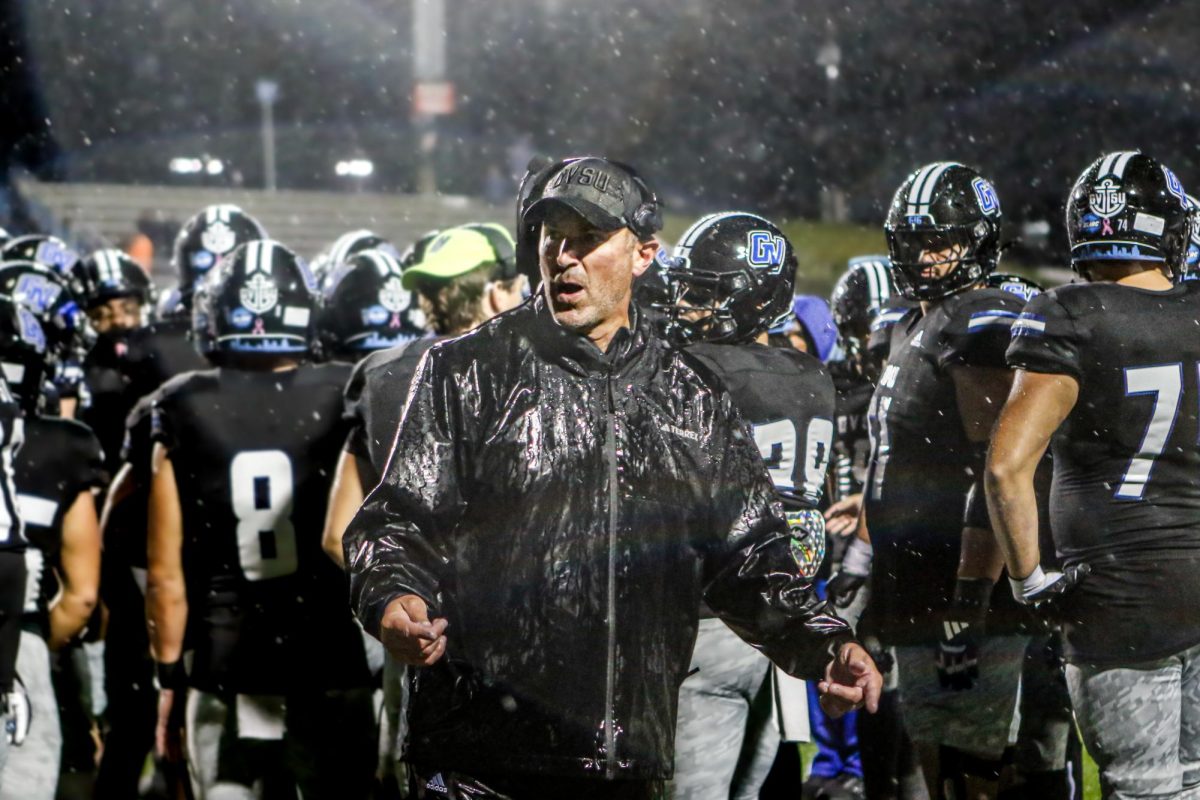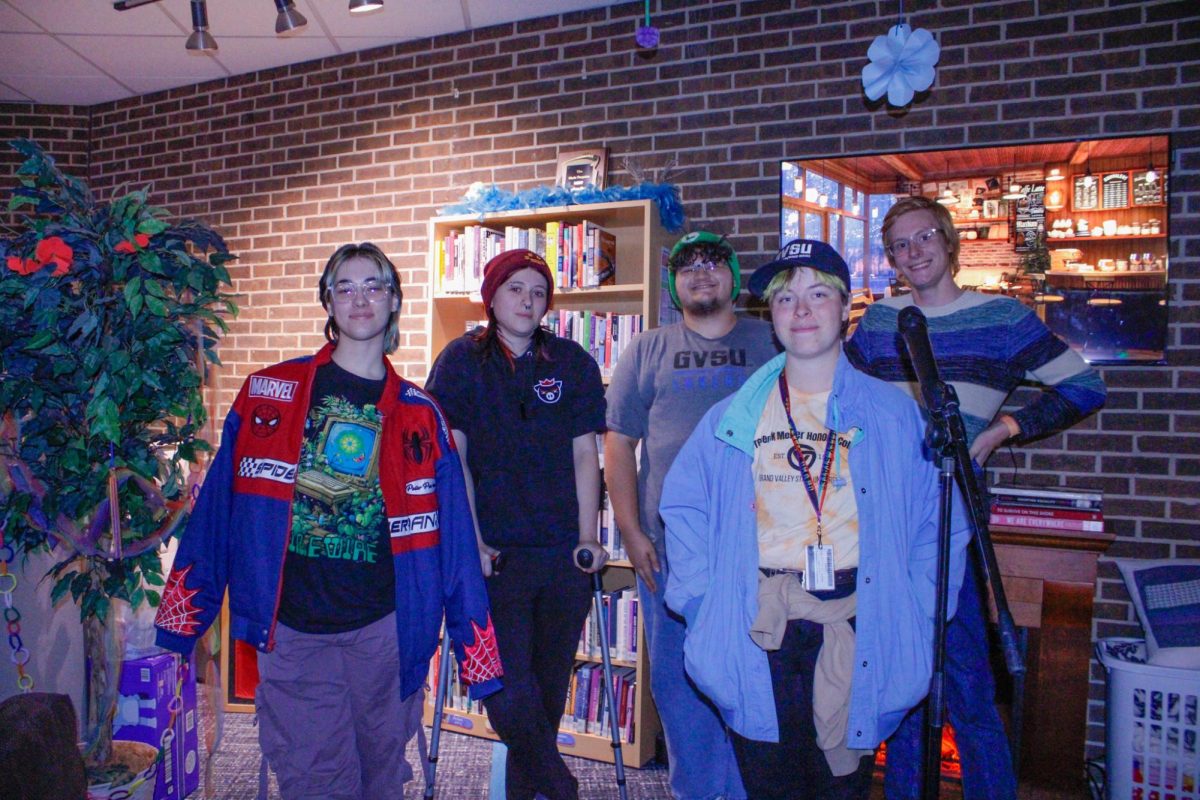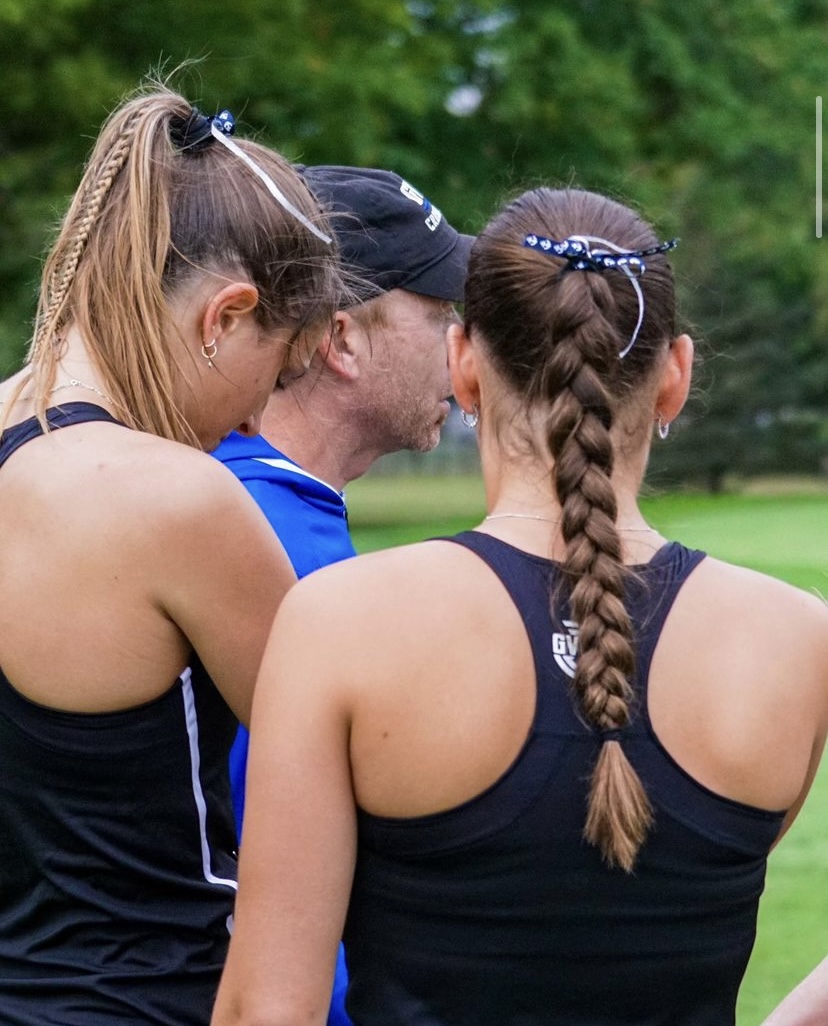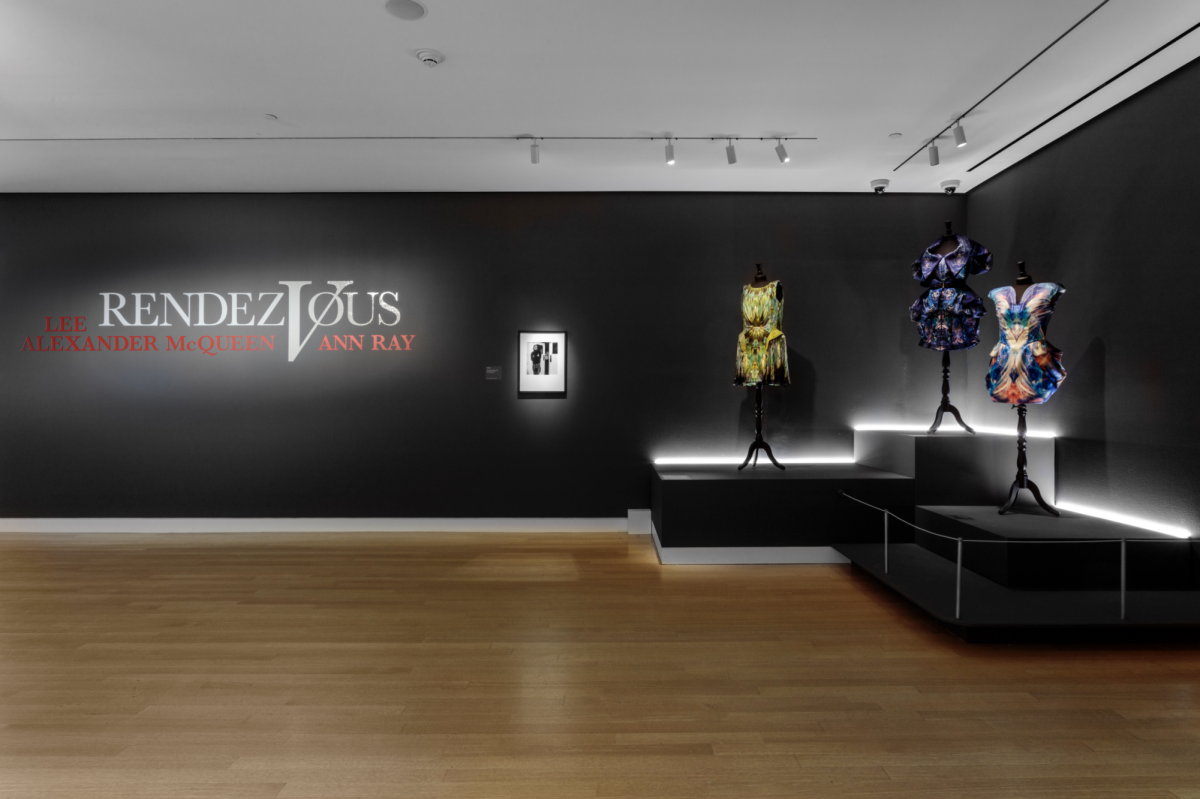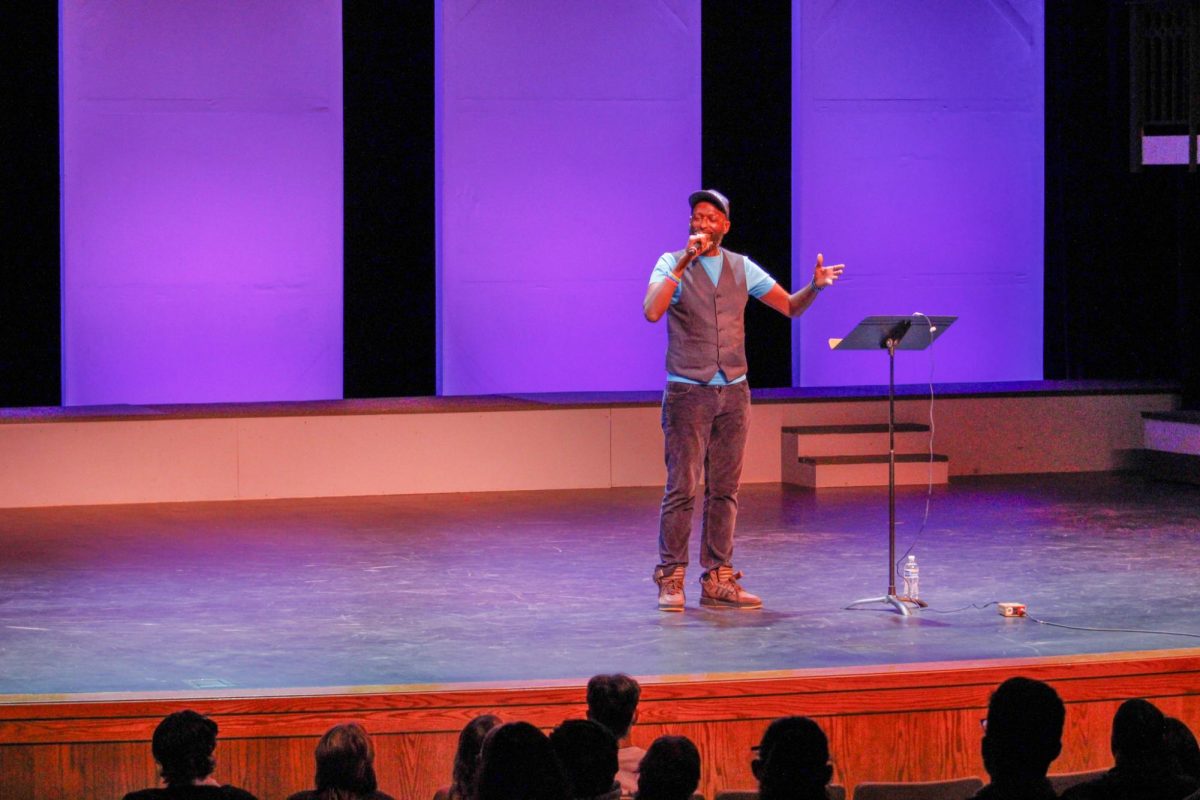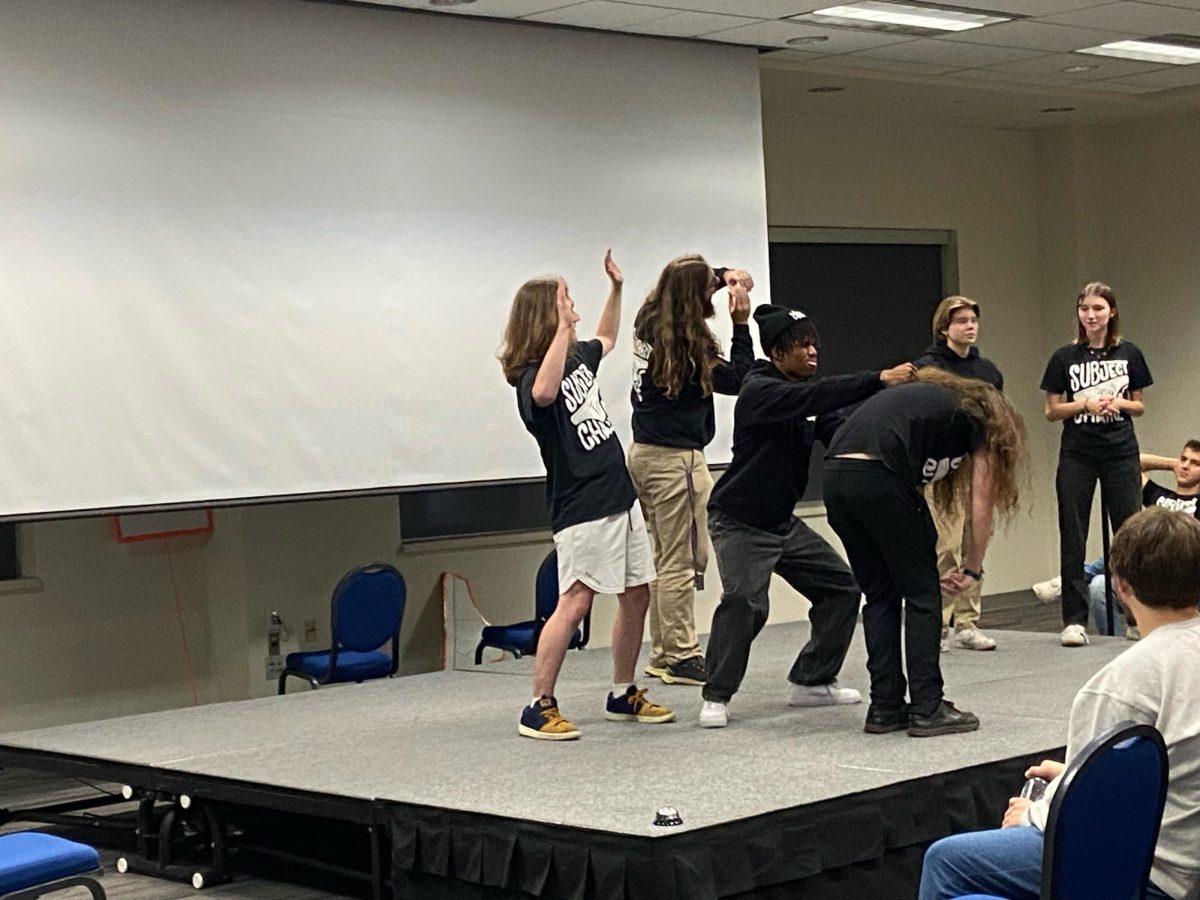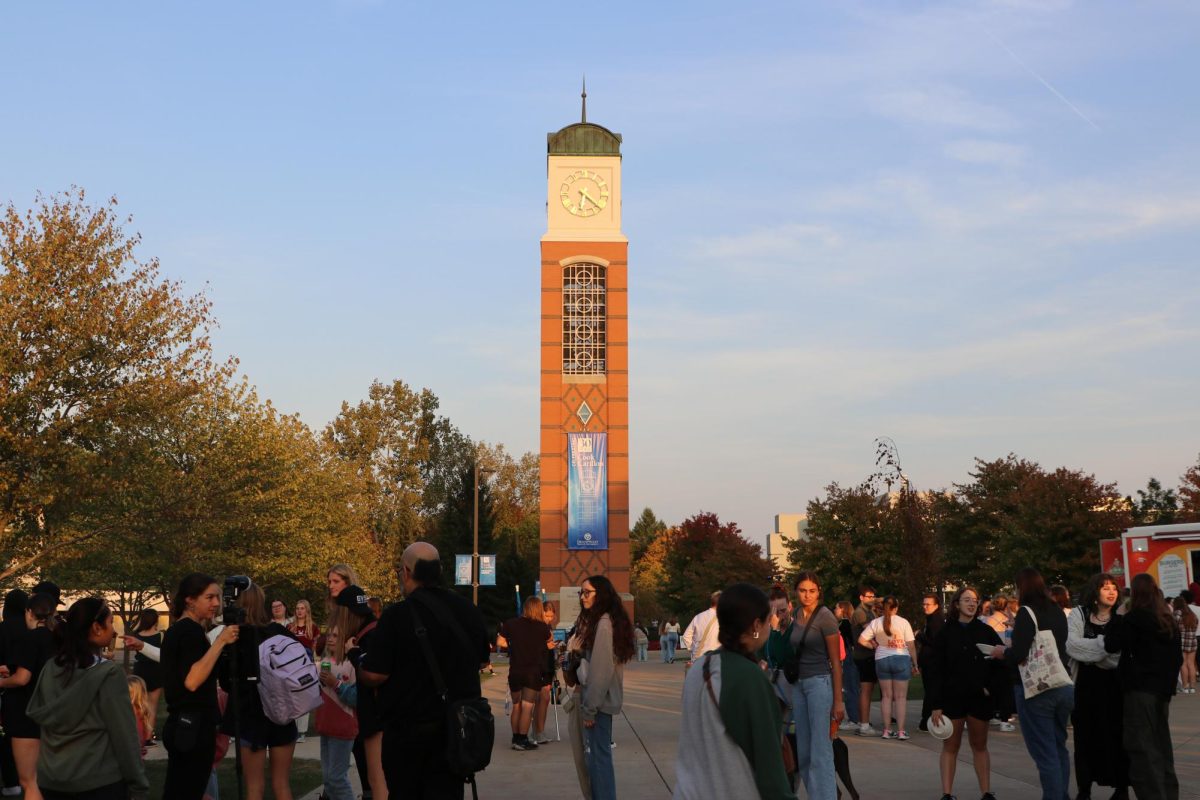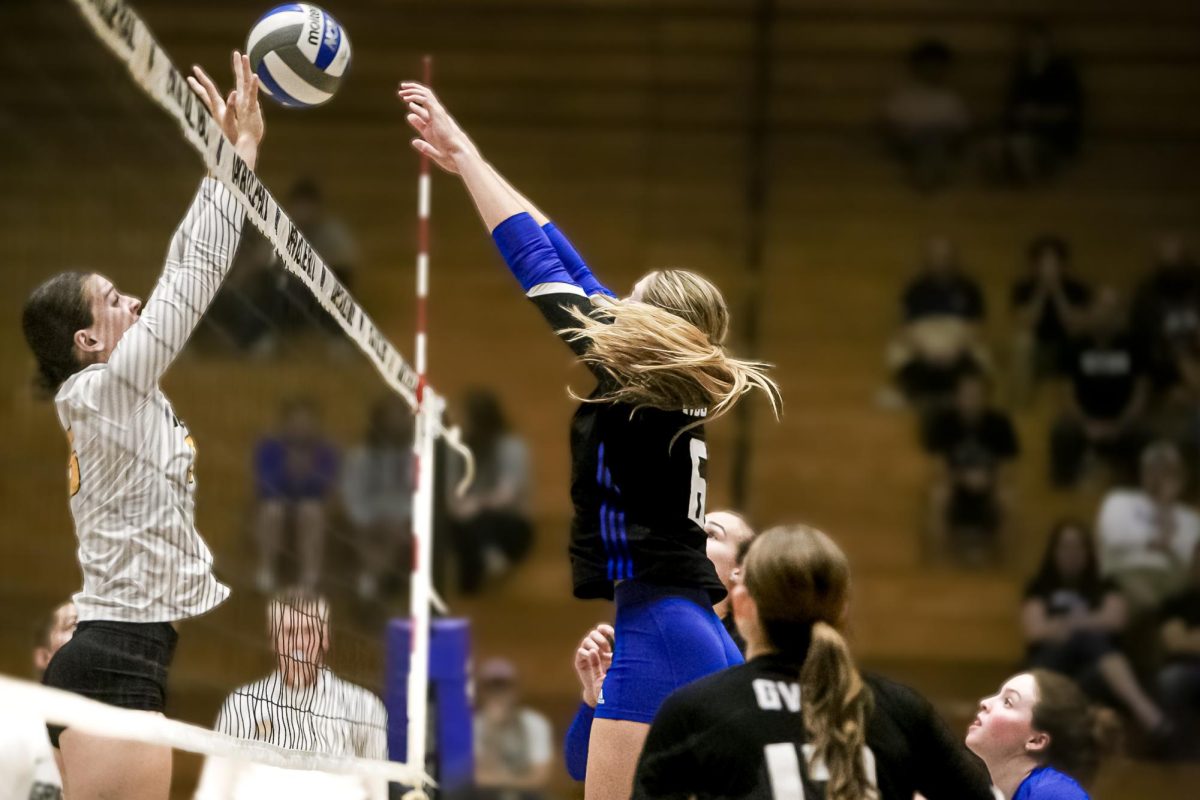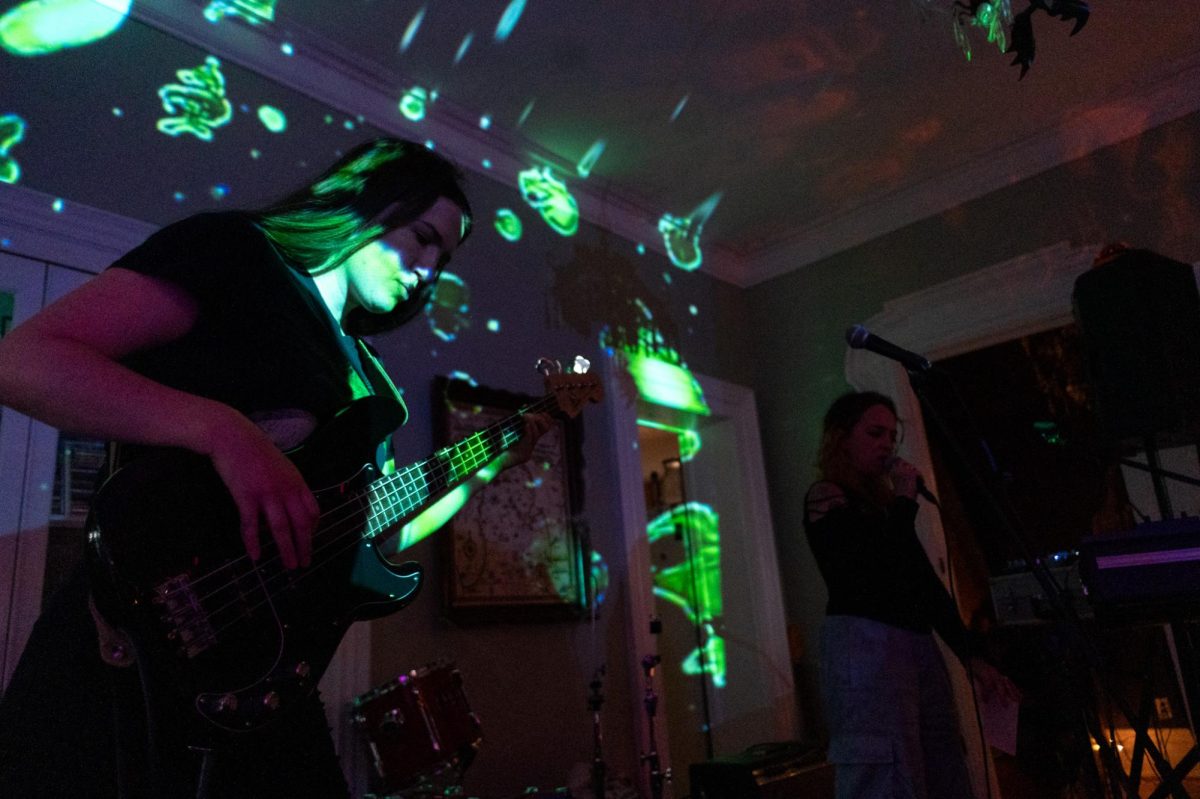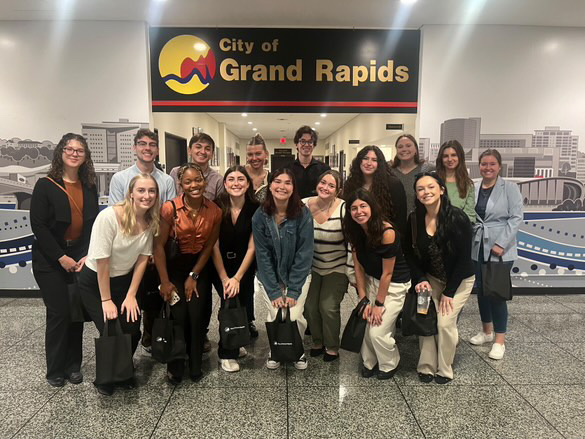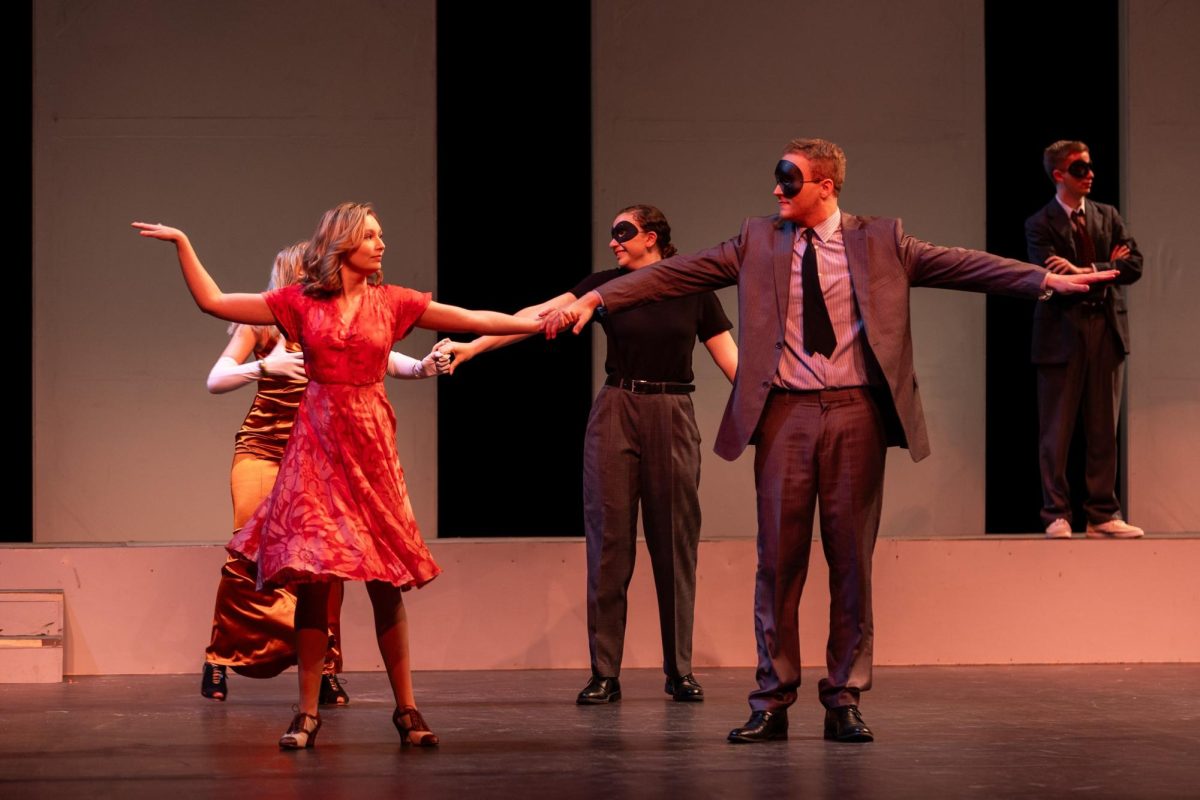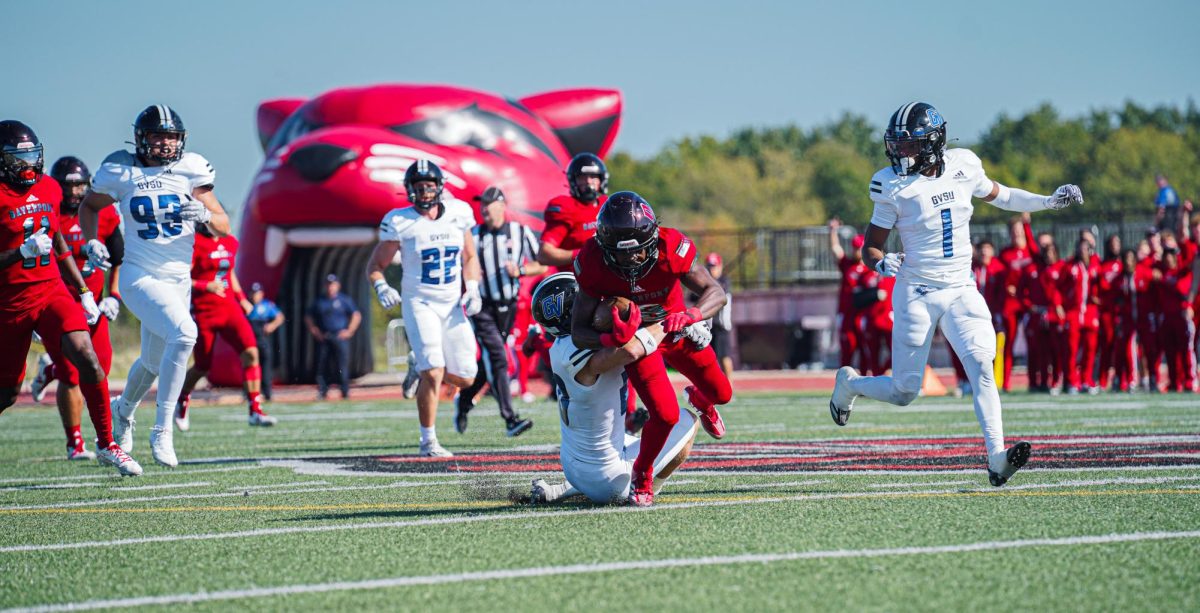Black Lives (do) Matter
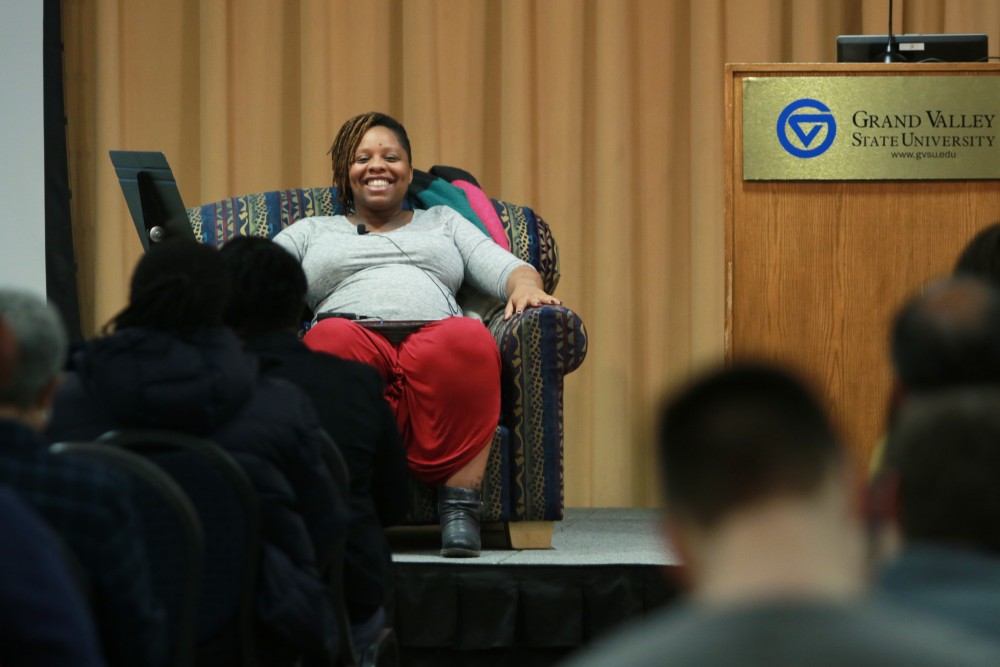
GVL/Kate Branum Patrisse Cullors speaks inside the Grand River Room at the Kirkhof Center on Grand Valley’s Allendale campus Jan. 20, 2016.
Jan 21, 2016
Patrisse Cullors, social activist and co-founder of the Black Lives Matter movement, spoke to Grand Valley State University students on Jan. 20. Her keynote presentation was one of many celebrating Martin Luther King Jr. Commemoration Week.
The presentation, given in the Grand River Room on the Allendale Campus, was also simulcast to the Loosemoore Auditorium so students on the Pew Campus could listen as well and ask questions.
Cullors emphasized the main points and reasons for the Black Lives Matter movement and why the movement came about.
“We live in a country that is obsessed with black death,” she said. “We live in a country that is so invested in black death that we have forgotten how to imagine black life. Our work is to imagine black life (and) black future.”
Cullors, along with Opal Tometi and Alicia Garza, started the Black Lives Matter movement in 2013 following the nationwide uproar when George Zimmerman was acquitted for the murder of teenager Trayvon Martin.
The movement of Black Lives Matter gathered most of its fame and attention when it was turned into a hashtag, but it started long before social media was ever invented.
“This movement started over 100 years ago where black people in particular have been fighting for our rights to not be second-class citizens from the moment we were brought here,” Cullors said. “So our work now, in 2016, is to really live the dream that MLK dreamed about and spoke about.”
During the presentation, Cullors asked the audience to talk to each other and ask themselves and the person sitting next to them two important and challenging questions: ‘What have you done to save black lives?’ and ‘What will you do to save black lives?’
“You should be asking yourself those questions every morning,” she said. “It’s really how I live my life. It’s how I think about this work.”
Cullors talked about many goals of the Black Lives Matter movement, one about challenging the rhetoric that is currently accepted in our society. The U.S. is seen as a great country that allows for opportunity to anyone who comes here. It has been seen as a place where families can come and live happily ever after, or where dreams come true. She said this rhetoric is dangerous and she hopes everyone will challenge that untrue vision.
“Some of us do live in that country (where) all and everything is possible,” Cullors said. “But some of us live in hell. And until we have that honest conversation about those who live in hell, we will not be able to really and truly live in a democratic society.”
Black Lives Matter, even with the best of intentions, garnered many negative reactions from people on Twitter. Most who opposed the trending hashtag insisted that all lives mattered, and it was racist to only say that the lives of black people matter.
“When (the criticism) first started, I was very defensive,” Cullors said. “But I don’t really have time for all that. So now I say to folks ‘why can’t we say black lives matter?’ and ‘what’s wrong with you, why are you unable to say it?’ I try to put the (focus) back on the person who is clearly ignorant and/or racist.”
The movement, once started, strived to include all black people. Not just black men, but black women and black transgender people as well. Cullors emphasized that all black lives do matter, and it shouldn’t be a question of ‘which black person’s life matters?’
“We have the audacity to say that black lives matter in a world where obviously our lives don’t,” Cullors said. “We are actually affirming our lives.”
She encouraged students to get out into their community and go make a difference. She hopes her words will stay with everyone and people will join movements to help people of color.
“The fight for black lives must come from all of us,” Cullors said. “Some of MLK’s most controversial statements were saying and pushing white people to show up for black lives. As we become a more diverse society, the question is really for all of us, ‘how are we all showing up for black lives?’”
Learn more about the Black Lives Matter movement at www.blacklivesmatter.com



